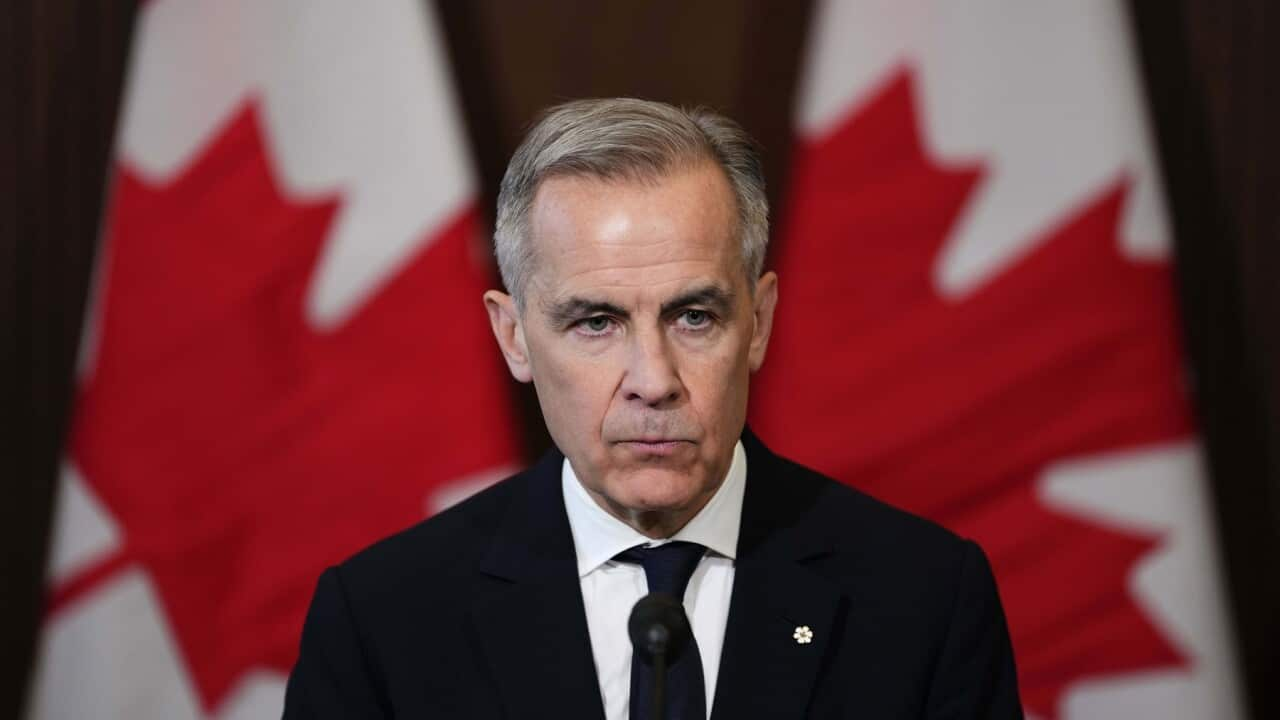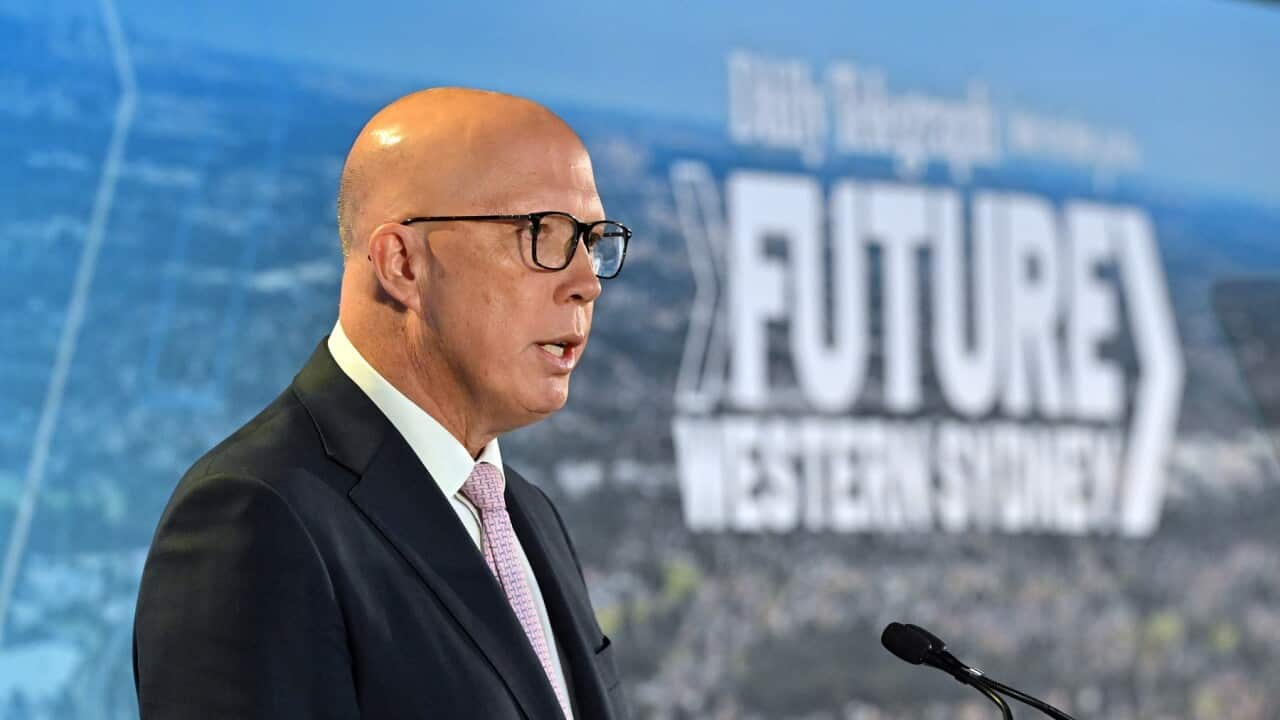TRANSCRIPT:
In the hours after Donald Trump announced wide ranging tariffs to impact US trading partners across the globe, the S & P stockmarket index had lost a combined 2.4 trillion dollars in value.
The US President says that market outcome was not a surprise to him - and he still expects the US economy to thrive on the back of his announcement.
"Well, I mean, it's to be expected where this was a patient that was very sick. We inherited, we’ve really inherited a terrible economy, as you know, with a lot of problems. So it's a sick, it was a sick patient. It went through an operation on Liberation Day. And it's going to be, it's going to be a booming country, a very booming country."
The penalties have also drawn condemnation from other world leaders reckoning with the end of a decades-long era of trade liberalisation.
But UK Prime Minister Keir Starmer says they are not going to panic, and will instead act in their national interest.
"And the national interest is to continue our negotiations for a deal with the US, which we've made progress on, and to ensure that we work with the sectors of the industries most impacted. And that's why, amongst other things, I had a roundtable for some of those businesses this morning. But we must act in the national interest. A trade war is in nobody's interest, in my view. But of course we have to protect ourselves and that's why we're keeping all options on the table."
While there is a ten percent minimum tariff on most goods imported to the U-S, the European Union has a higher rate - 20 per cent.
Mr Trump says he is open to negotiations with the UK and other countries if they offered what he has described as something phenomenal.
But Europe is already considering retaliatory action.
French President Emmanuel Macron says European companies have called for the suspension of investment in the U-S, a proposal French Foreign Minister Jean-Noel Barrot says has some merit.
"Solidarity, as I said, is unfailingly required today from all members of the Alliance. Solidarity, which is nevertheless tested by the decisions that were taken and announced yesterday (April 2) by (U.S.) President Trump with the application of reciprocal tariffs which will have negative consequences on the American economy as well as on the economies of all the members of the Alliance. This is also the case for the European economy."
Frederic Zeimett is the C-E-O at a champagne house in France's Champagne region of Epernay.
The U-S is the largest market for French wine and spirits, with shipments to the country rising five per cent in 2024 to 6.63 billion dollars [[$3.8 billion euros]].
Mr Zeimett says the US is his company's primary export market - and it would be hard for champagne producers to shift to other trading partners.
Meanwhile, Canadian Prime Minister Mark Carney has called the move a tragedy for global trade.
He has announced a limited set of counter measures against U-S tariffs, and says the Canadian government will follow the U-S approach by imposing a 25 per cent tariff on all vehicles imported from the United States that are not compliant with the U-S-Mexico trade agreement.
The Prime Minister says Canada won't stop there.
"We will fight to bring each of these tariffs to an end. We're fighting in courts, challenging that these tariffs have been illegally imposed under US law. We have filed disputes underscoring that they are in violation of our free trade agreement, CUSFTA. We have gone to the World Trade Organisation because these actions are against international trade law. We are responding today with, and we have responded throughout, with carefully calibrated and targeted counter tariffs."
In Asia, China has accused the U-S of bullying them through the new measures.
Chinese imports into the US will now attract a 34 per cent levy, on top of an earlier 20 per cent tariff, while Japan faces a 24 percent tariff, and South Korea, 25 per cent.
In Bangladesh, the U-S is the largest market for the country's thriving $ 50 billion ready made garment industry, accounting for nearly $16 billion in exports.
Clothing factory owner Nasiruddin Chowdhury says everyone is in shock they will be required to pay a 37 percent tax on export items from Bangladesh.
"It’s bad news for us if double tax is imposed. As a Bangladeshi clothesmaker and exporter, this is shocking news for us. If you look at the socio-economic situation in Bangladesh, you’ll see that less privileged females are mostly making a living from this industry. They will face the brunt if American buyers leave Bangladesh due to this tariff imposed."
So what does all of this mean for the US economy?
Seung Min Kim is a journalist with the Associated Press in Washington.
"Tariff rates as high as 34 per cent on China, 20 per cent from goods from the European Union and almost you know no country was spared here and President Trump has been calling this 'Liberation Day.' Liberation from US consumers having to pay for foreign goods. He wants to bring manufacturing back domestically and he thinks this is the right way to do it even though almost every economy says this could really hurt US consumers."
Robert Kahn is the Managing Director with Global Macro at Eurasia Group, a firm that aids investors and business decision-makers to understand the impact of politics on the risks and opportunities in foreign markets.
He says new tariffs will bring tremendous uncertainty globally.
"Using some conventional models, you'd probably get inflation about 2 per cent, higher growth, about 2 percent lower. And of course, the U.S. economy is already facing some material headwinds. So this is a pretty significant shock and as I emphasise, tremendous uncertainty around those numbers."













